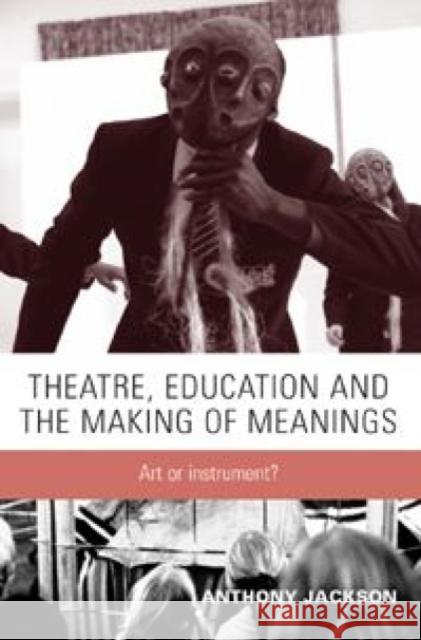Theatre, Education and the Making of Meanings: Art or Instrument? » książka
Theatre, Education and the Making of Meanings: Art or Instrument?
ISBN-13: 9780719065422 / Angielski / Twarda / 2007 / 320 str.
Theatre, Education and the Making of Meanings: Art or Instrument?
ISBN-13: 9780719065422 / Angielski / Twarda / 2007 / 320 str.
(netto: 391,20 VAT: 5%)
Najniższa cena z 30 dni: 406,56
ok. 30 dni roboczych.
Darmowa dostawa!
This book is a study of theatre's educational role during the 20th and the first years of the 21st centuries. It examines the variety of ways the theatre's educational potential has been harnessed and theorised, the claims made for its value and the tension bettween theatre as education and theatre as 'art': between theatre's aesthetic dimenstion and the 'utilitarian' or 'instrumental' role for which it has so often been pressed into service.
Following a preliminary discussion of some key theoretical approaches to aesthetics, dramatic art and learning and, above all, the relationships between them, the study is organised into two broad chronological periods: early developments in European and American theatre up to the end of World War II, and participatory theatre and education since World War II. Within each period, a cluster of key themes is introduced and then re-visited and examined through a number of specific examples - seen within their cultural contexts - in subsequent chapters. Topics covered include an early use of theatre to campaign for prison reform; workers' theatre, agit-prop and American living newspapers in the 1930s; theatre's response to the dropping of the atom bomb in 1945; post-war theatre in education; theatre in prisons; and the use of performance in historic sites.











